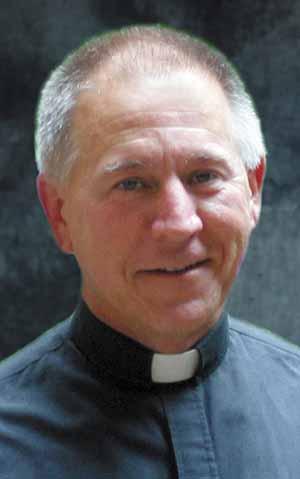
By Father Bud Grant
The oil spill in the Gulf of Mexico has been called the greatest environmental disaster ever faced by our nation. But it isn’t: not even close.
To be sure, the crisis is almost mind-numbingly vast. Every day 40,000-60,000 barrels of oil are pumping into the waters of the Gulf. In total, that is as much as 3,540,000 gallons as of Friday, June 18. Besides the tragic loss of human life in the initial explosion, estimates range as high as $40 billion in lost revenues and clean-up costs. Environmental impact is deep and broad: animals are dying, whole habitats are smothered, endangered species are suffering, and we don’t know what impact there may be on the deep waters system.
And then there are the unintended consequences of actions taken to deal with the crisis. Using chemical dispersants may make the problem look less severe, but it also makes it harder to collect the oil and keeps more of the oil below the surface. Creating enormous, artificial barrier islands is itself an act of enormous ecological change, the consequences of which no one knows. Burning off oil has its own obvious negative effects. We don’t even know for sure whether rescue operations for Gulf birds and sea turtles do anything other than prolong their suffering. Evidence seems to suggest that most die very quickly after release and survivors rarely reproduce. We will be dealing with this crisis for decades to come.
Moreover, we get worked up about important ancillary issues of economics, politics, even class and race. Oil is 16 percent of the economy of the Gulf region, while fishing/oyster etc. is merely 1 percent. For all the empathy for those whom the president of BP unfortunately called the “small people,” it is the lure of oil money that has many in the area siding with BP and deep-water drilling, even while they lose jobs and lifestyles.
Thus is explained the “all politics is local” savvy of one Texas congressman who actually apologized to this $114 billion international corporation for shamefully being “shaken down” by the U.S. government (Congressman Joe Barton is Congress’ top recipient of oil campaign donations). He may have had to apologize for his apology out in D.C., but it played well with many of his constituents back home.
But this is not our worst environmental crisis. By comparison, the combined oil contamination from 330 leaks documented between 1964 and 2009 is 23,121,000 gallons, not including an enormous rupture of a Mexican drill in 1979 that bled oil for 290 days, nor is the infamous Exxon Valdez counted in these stats. At least 13 workers were killed and dozens of others injured in separate events. But even these combined spills do not constitute our worst ecological crisis.
So what is? Here’s a clue: it is estimated that, so far, BP has hemorrhaged enough oil into the Gulf to fuel the United States for 2-1/2 hours. That’s right: 2.5 hours. So what is the biggest environmental catastrophe in our history? Oil consumption? Maybe. The U.S. is the single-largest user of the world’s finite, dwindling and dangerous oil resources. We are less than 5 percent of the world’s population, but gobble up 20 percent of the oil.
Critics accuse the government and BP of using the dispersants cosmetically: if we don’t see the problem, we won’t think it is so bad. That same logic applies on a colossal scale with our oil appetites. We don’t see the impact on the earth’s health, and so we lull ourselves into believing that all is well. Some citizens of the Gulf insist that the newly imposed ban on deep-water drilling contracts be lifted even while their hotels shutter, their beaches blacken, their food poisons and their ecosystems choke.
Our worst ecological crisis: willful blindness to the long- term and global ecological damage for the sake of maintaining a standard of living to which we are addicted.
(Father Bud Grant is an assistant professor of theology at St. Ambrose University in Davenport.)








